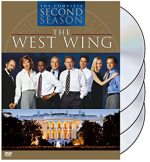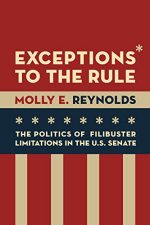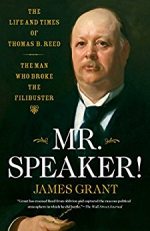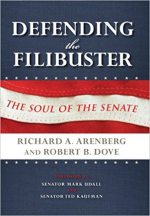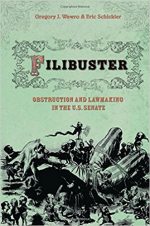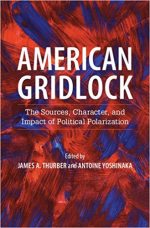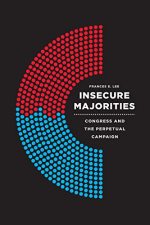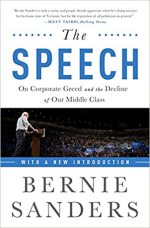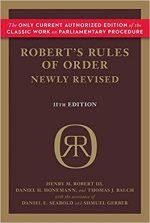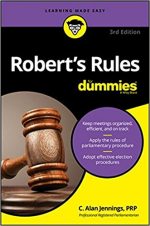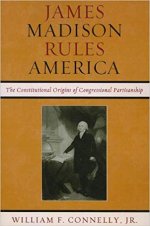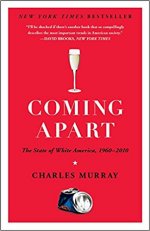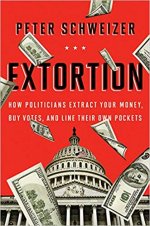Filibusters are made possible in part due to Senate rules providing that when a senator is recognized to speak regarding a pending measure there are few limitations. Debate is typically unlimited regarding pending measures. Once a senator is recognized, she can yield to another senator for the purpose of a question, but the senator that has been recognized still controls the floor. When a senator continues to speak for an extended period of time it is known as a filibuster.

Throughout the history of America, there have been some notable instances in which extended filibusters occurred in the Senate. The longest filibuster to date is credited to Strom Thurmond, who spoke for 24 hours and 18 minutes on the civil rights bill in 1957. Wayne Morse spoke for 22 hours and 26 minutes on the Tidelands oil bill in 1953. William Proxmire actually held the floor for more than 25 hours in 1961; however, he yielded the floor to other senators for several hours during that time period.
030613 – Sen. Rand Paul Senate Filibuster – HOUR 1
See also Senator Rand Paul: CIA Director John Brennan Should Be Fired.
The modern approach to filibusters is often referred to as the tag-team approach. In this approach a senator will speak for a period of time and then yield to another senator. In a situation in which several senators participate in an extended period of debate it can actually take some time for the Senate to recognize that a filibuster is being conducted. As a result, the mere threat of a filibuster carries significant weight in the Senate.
Debate within the Senate is limited only under certain situations. These situations include when:
- Cloture is invoked
- Debate is limited by unanimous consent
- The Senate operates under a unanimous consent time agreement
- The Senate considers a motion to table
- The Senate considers a measure governed by a rule-making statute
Each senator is prohibited from speaking more than twice on the same subject on the same legislative day under Senate rules. Due to the fact that each amendment is considered to be a different subject, the two-speech rule is actually not a practical limit on debate.
Also see “Filibuster / Unlimited Debate (CongressionalGlossary.com)”
Courses
- Congressional Operations Briefing – Capitol Hill Workshop
- Drafting Federal Legislation and Amendments
- Writing for Government and Business: Critical Thinking and Writing
- Custom Training
- Congressional Operations Poster, with Federal Budget Process Flowchart
- Federal Budgeting, a Five-Course series on CD
- Congress, the Legislative Process, and the Fundamentals of Lawmaking Series, a Nine-Course series on CD
Publications

The Federal Budget Process 2E

Pocket Constitution

Citizen’s Handbook to Influencing Elected Officials: A Guide for Citizen Lobbyists and Grassroots Advocates

Congressional Procedure
CongressionalGlossary.com, from TheCapitol.Net
The West Wing: Season 2
Exceptions to the Rule: The Politics of Filibuster Limitations in the U.S. Senate
Mr. Speaker!: The Life and Times of Thomas B. Reed The Man Who Broke the Filibuster
Defending the Filibuster: The Soul of the Senate
Parliament of Whores: A Lone Humorist Attempts to Explain the Entire U.S. Government
Don’t Vote It Just Encourages the Bastards
Filibuster: Obstruction and Lawmaking in the U.S. Senate
American Gridlock: The Sources, Character, and Impact of Political Polarization
Insecure Majorities: Congress and the Perpetual Campaign
The Speech: On Corporate Greed and the Decline of Our Middle Class
Robert’s Rules of Order Newly Revised
Robert’s Rules For Dummies
Mr. Smith Goes To Washington
James Madison Rules America: The Constitutional Origins of Congressional Partisanship
Coming Apart: The State of White America, 1960-2010
Extortion: How Politicians Extract Your Money, Buy Votes, and Line Their Own Pockets
For more than 40 years, TheCapitol.Net and its predecessor, Congressional Quarterly Executive Conferences, have been teaching professionals from government, military, business, and NGOs about the dynamics and operations of the legislative and executive branches and how to work with them.
Our custom on-site and online training, publications, and audio courses include congressional operations, legislative and budget process, communication and advocacy, media and public relations, testifying before Congress, research skills, legislative drafting, critical thinking and writing, and more.
TheCapitol.Net is on the GSA Schedule, MAS, for custom on-site and online training. GSA Contract GS02F0192X
TheCapitol.Net is now owned by the Sunwater Institute.
Teaching how Washington and Congress work ™

